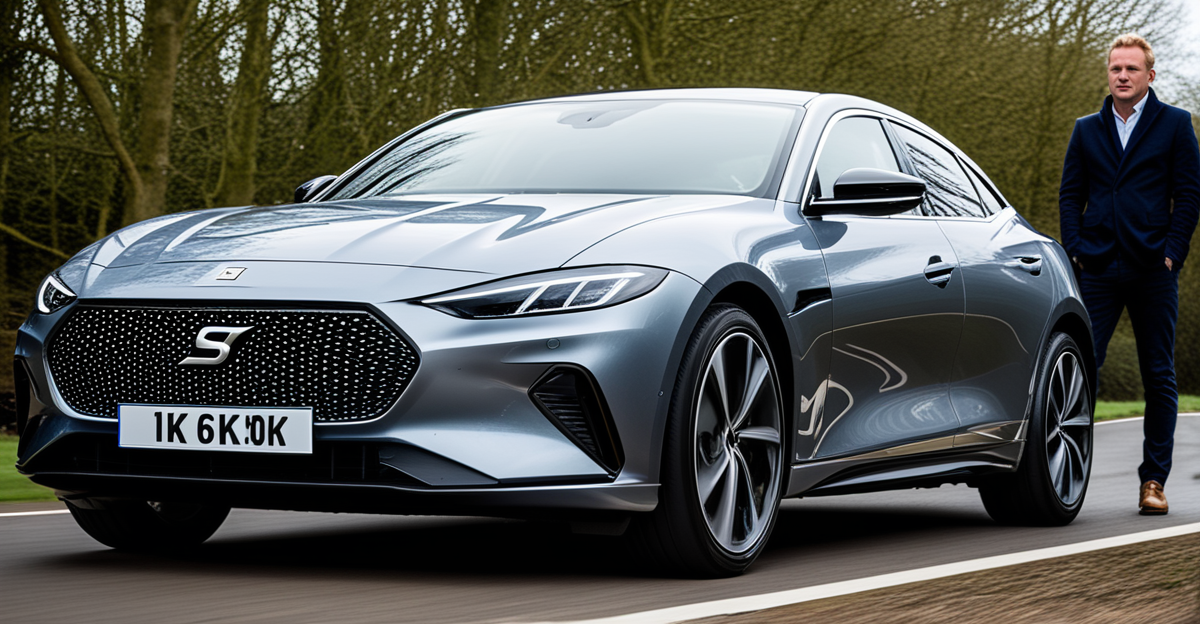Transformative Technologies Shaping the UK’s Automotive Future
The UK automotive innovation landscape is rapidly evolving, driven by a convergence of emerging technologies that promise to redefine the driving experience and industry fundamentals. At the forefront are electric vehicle advancements, which have seen significant progress in both battery technology and charging infrastructure. The UK’s expanding network of rapid chargers and government-supported infrastructure projects are critical enablers, fostering widespread adoption and addressing range anxiety.
Autonomous driving is another pivotal component of emerging technologies in automotive. UK manufacturers and technology firms are integrating advanced AI systems into vehicles, enabling features from driver assistance to full autonomy. This integration enhances safety, optimizes traffic flow, and paves the way for shared mobility models. AI-powered vehicles rely on sophisticated sensor arrays and machine learning algorithms to interpret environmental data in real time, a complexity that reflects the cutting-edge nature of the automotive future trends.
Additional reading : What Are the Latest Trends Influencing the UK Automotive Sector?
Connected car technology further amplifies these innovations by linking vehicles to each other and digital services. This connectivity allows for continuous data exchange, predictive maintenance alerts, and enhanced infotainment options. Its implications go beyond driver convenience; connected cars contribute valuable data for smarter urban planning and can support emergency response systems more efficiently.
Together, these technologies—electric vehicle breakthroughs, autonomous driving AI, and connected car systems—are not just reshaping vehicles themselves but transforming the broader UK automotive ecosystem. Each innovation supports a cleaner, smarter, and more integrated mobility future that aligns with the country’s strategic vision for sustainable and intelligent transport solutions.
This might interest you : What Will Be the Future of Electric Vehicles in the UK?
Regulatory and Policy Drivers of Innovation
Government regulations and UK automotive policy serve as powerful catalysts for innovation in the automotive sector. The UK government actively shapes the landscape through stringent emissions standards and ambitious decarbonisation targets. These policies compel manufacturers and suppliers to prioritize cleaner and more efficient technologies, directly influencing which emerging technologies in automotive receive funding and development focus.
A prime example is the UK’s commitment to phasing out petrol and diesel vehicles by 2030, accelerating the shift toward electric vehicles. This commitment is reinforced through various EV incentives UK, including grants for electric vehicle purchases and subsidies for installing charging points. These incentives reduce barriers for consumers and manufacturers alike, ensuring broader adoption of electric cars and related technologies.
Additionally, targeted funding programs support research and development in the automotive innovation UK sector. Public investment encourages collaboration between industry, academia, and technology providers, fostering breakthroughs that align with policy goals. This coordinated approach ensures that policy does not merely regulate but actively drives the adoption of sustainable and advanced mobility solutions.
Together, these regulatory frameworks and incentives form a comprehensive ecosystem that energizes ongoing innovation while aligning the UK’s automotive future with environmental and economic priorities.
Sustainability and Environmental Trends
The pursuit of a sustainable automotive UK is becoming central to the sector’s transformative agenda. Increasingly, green automotive innovations are targeting every phase of a vehicle’s lifecycle, from design to end-of-life processes, reflecting strong commitments to reducing the environmental impact of transport.
One key area is the advancement of circular economy initiatives. This approach emphasizes reusing materials and reducing waste, with manufacturers adopting eco-friendly manufacturing methods that minimize resource consumption and emissions. For instance, processes incorporate recycled metals and bio-based composites, lowering the carbon footprint embedded in vehicle production.
Battery recycling has also emerged as a critical focus within emerging technologies in automotive. As electric vehicle adoption grows, so does the volume of spent batteries requiring efficient recycling. The UK is investing in infrastructure to recover valuable minerals, such as lithium and cobalt, from used batteries, supporting carbon-neutral transportation by conserving finite resources and reducing environmental damage associated with raw material extraction.
Furthermore, comprehensive efforts are underway to reduce lifecycle emissions across the automotive sector. This includes optimizing supply chains for sustainability, enhancing energy efficiency in manufacturing, and promoting renewable energy use. These initiatives are not only aligned with government decarbonization targets but also embody the latest automotive future trends, where sustainability and innovation converge to reshape mobility for a low-carbon future.
Evolving Business Models and Industry Ecosystem
The automotive business models UK landscape is undergoing a significant transformation, driven largely by consumer demand for flexibility and technology integration. One prominent shift is toward mobility as a service (MaaS), which redefines vehicle access from ownership to subscription and shared use models. This approach not only addresses urban congestion but also aligns with evolving automotive future trends that prioritize sustainability and user convenience.
Car subscription services UK are a vivid example of this shift, offering customers the flexibility to change vehicles without long-term commitments. These services bundle insurance, maintenance, and support into seamless packages, enhancing the automotive customer experience UK while adapting to new mobility preferences. This model benefits consumers by reducing upfront costs and the hassle involved with traditional ownership.
Strategic partnerships and collaborations are essential in accelerating innovation within the UK automotive ecosystem. Industry players—from established manufacturers to agile start-ups—are combining expertise to develop cutting-edge technologies and solutions. These collaborations foster cross-sector innovation, especially in integrating AI, electric powertrains, and connected systems, demonstrating the dynamic and collaborative nature of the automotive innovation UK environment.
The rise of tech-led disruptors further energizes the market. Start-ups are leveraging advanced data analytics, AI, and digital platforms to challenge traditional auto industry paradigms. By introducing novel services and products, these new entrants shape the competitive landscape, encourage traditional firms to innovate, and ultimately expand the scope of emerging technologies in automotive available in the UK.
Together, these evolving business models and the dynamic ecosystem reshape how mobility is delivered and experienced across the UK, signaling an adaptable and forward-looking automotive industry.
Economic and Consumer Impacts of Automotive Innovation
Understanding the UK automotive economy requires recognizing how automotive innovation UK fuels job creation and economic expansion. Advances in vehicle technology and manufacturing processes generate new roles ranging from software development to advanced engineering. This innovation-led growth supports both traditional automotive hubs and emerging tech clusters, reinforcing the sector’s economic backbone.
How do these innovations transform the automotive customer experience UK? Cutting-edge features such as personalized infotainment, enhanced safety through AI, and seamless connectivity make driving more intuitive and enjoyable. Consumers benefit from tailored services like predictive maintenance and integrated digital platforms, which reduce inconvenience and enhance vehicle reliability.
Is the market ready for these technological shifts? Public acceptance hinges on factors like affordability, trust in autonomous systems, and infrastructure availability. Ongoing education and transparent communication help bridge gaps, encouraging wider uptake. As innovation impact grows, it drives a positive feedback loop where enhanced consumer experiences further stimulate demand and economic momentum.
In essence, the fusion of innovation and consumer needs shapes a responsive, vibrant automotive market in the UK—one that promises sustainable growth and evolving experiences aligned with future mobility trends.
Transformative Technologies Shaping the UK’s Automotive Future
The landscape of automotive innovation UK is being propelled forward by significant emerging technologies in automotive, which are key drivers of current automotive future trends. Electric vehicle advancements remain central to this transformation. Progress in battery density, cost reduction, and vehicle range, combined with the expansion of charging infrastructure across the UK, are crucial factors enabling wider electric vehicle adoption. This infrastructure growth addresses range anxiety head-on, making electric vehicles more practical and appealing for everyday use.
Another major leap in the automotive innovation UK space is the integration of autonomous driving technologies coupled with artificial intelligence. Vehicles are now equipped with sophisticated AI systems that process data from multiple sensors in real time, facilitating safer and more efficient driving experiences. These systems enhance driver assistance capabilities and lay the groundwork for future fully autonomous vehicles, positioning the UK as a key player in the development of autonomous solutions within emerging technologies in automotive.
Likewise, connected car technology is advancing rapidly, enabling cars to communicate with each other and with infrastructure. Such connectivity supports predictive maintenance, improved traffic management, and enriched infotainment options, all of which reflect the latest automotive future trends. By enabling data exchange between vehicles and external systems, connected cars improve safety and contribute to smarter, more integrated transport networks across the UK. Together, these transformative technologies are not only redefining vehicles themselves but also shaping the entire mobility ecosystem through innovation, connectivity, and sustainability.






